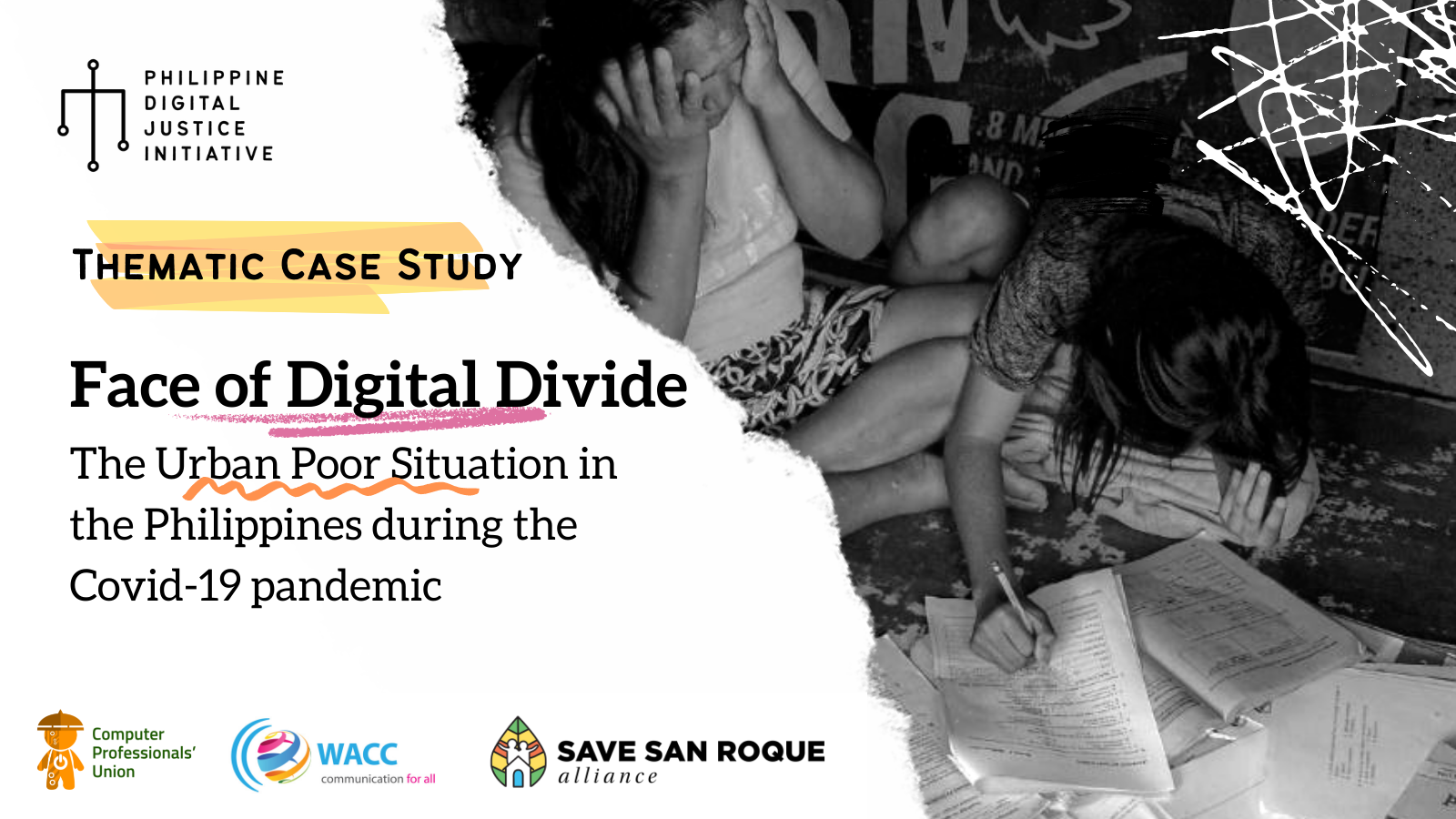Context
Sitio San Roque is an urban poor settlement located in Barangay Bagong Pag-Asa, North Triangle, Quezon City in the Philippines. It is a property owned by the National Housing Authority, a government agency responsible for public housing in the Philippines. Before the threats of demolition, this urban poor community had about 100,000 residents. They are at risk of completely being eradicated in the area since the 256 hectare land is being converted into a “Mix-Use Community” for residential and commercial use. The ongoing construction of high rise condominiums is caving inch by inch at the difficult yet peaceful community.
The urban poor in the Philippines, the residents of Sitio San Roque included, are very vulnerable to the escalating cost of living in urban centers. Aside from the lack of opportunities and poor housing conditions, the urban poor are very vulnerable to uncertainties in income. In this sector of society, the digital divide is very prominent. The inability to utilize the available technology to access the digital realm, along with lack of access to the internet is a reality here. The P537 ($10 USD) daily minimum wage in the National Capital Region barely supports the basic needs of a family in the Metro.
The problem of digital divide was exacerbated by the Covid-19 pandemic. Aside from the economic lockdowns and health care issues, the sudden shift to remote learning for students became a major issue in Sitio San Roque. In mid-2020, DepEd launched its learning continuity plan to transition to distance learning in line with the national government’s COVID-19 mitigation response. Instead of face-to-face learning, three other learning delivery modalities were put forth in this plan: distance learning (modular, online, television/radio-based), blended learning, and homeschooling. The secretary of education, Briones, “maintain[ed] that education must continue, whatever the changes and even dangers […].”
As of September 2021, 2 million students from public and private schools are yet to register even though 24.6 million are enrolled. The Philippines is among the last two countries that have not yet reopened or partially reopened schools: a far cry from the victory against COVID-19 that DepEd makes out to be, as the past academic year highlighted the social inequalities including access to education. The unsystematic transition led by the Department of Education has negatively impacted students, and parents particularly in urban poor communities. As a response, Eskuwela Maralita, a grassroots and community-led initiative, was launched in Sitio San Roque to support students as they navigate the transition to distance learning. This initiative serves as a temporary community learning hub where volunteer-teachers within and outside the community act as para-teachers or learning support aides.
This case study looks at the efforts of Sitio San Roque and its allies in Eskuwela Maralita, including the lapses and challenges encountered in its implementation. It delves into the experience of students and parents in the community one year after the implementation of DepEd’s learning continuity plan. Finally, it echoes the residents’ calls for support to grassroots initiatives (for education during COVID-19), safe reopening of schools and ways to lessen the gap of the digital divide.

